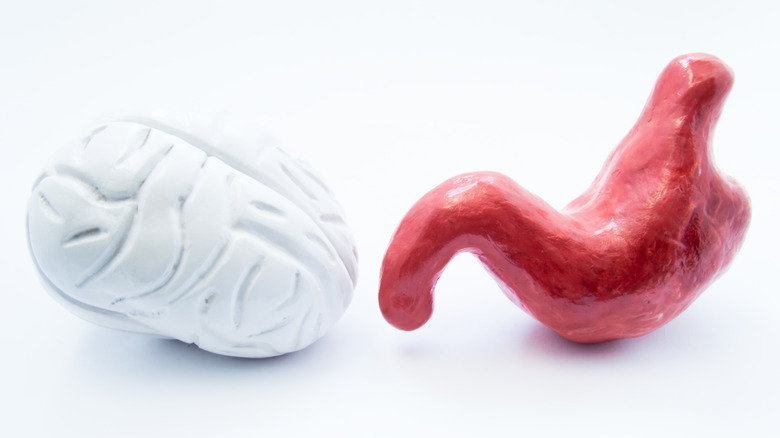Brain Specialist Dr. Marc Milstein Explains The Link Between Gut And Brain Health - Exclusive
At some point, you've probably heard the digestive system described as the body's "second brain." This phrase was coined by Dr. Michael Gershon in the research for his groundbreaking book "The Second Brain: The Scientific Basis of Gut Instinct and a Groundbreaking New Understanding of Nervous Disorders of the Stomach and Intestine." Dr. Gershon's research was some of the first to provide definitive proof of the "gut-brain connection."
Since Dr. Gershon first introduced the concept that brain health and gut health are intrinsically linked, an incredible amount of research has been conducted on the gut-brain connection and how disorders of the gut impact neurological disorders and vice versa. One of the people currently doing this research is Dr. Marc Milstein. He started his career researching a protein involved in breast cancer, but when the research team he was on discovered that the protein was also involved in memory, he decided to change the focus of his research. He wanted to understand exactly how brain health is connected to the health of the body's other systems, including the gut. In doing this research, Dr. Milstein and his colleagues discovered that a healthy gut is crucial for a healthy brain and that simple lifestyle changes made a huge impact on long-term brain health.
In an exclusive interview with Health Digest, Dr. Milstein explained how gut health and brain health are linked and how people can take care of their digestive systems to take care of their brains.
Improving gut health to improve brain health
Dr. Marc Milstein explained that research has revealed that your gut and brain are connected by a complex web of nerves, which is why each system has a huge impact on the other. "This is one of the fascinating connections," he said. "What is happening in the gut can impact mood, memory, and how we age."
Because the gut and brain are so intimately connected, we can't have a healthy brain without a healthy gut. Luckily, there are some simple ways to improve gut health. "One key takeaway is we want to feed good bacteria that line the gut," he emphasized. "These good bacteria do a lot for us, including protecting our gut and making vitamins. Good bacteria like to eat fiber, so we want to include fiber in our diets."
Of course, diet and exercise have a huge impact on gut health, so it's important to make sure you're eating foods that optimize gut health and moving your body on a regular basis. Dr. Milstein said that even small changes to diet and exercise can make a big difference long term, so don't let yourself get overwhelmed by overhauling your diet and exercise routine. Make incremental changes, and let them add up over time.
For more information about optimizing your brain health, check out Dr. Milstein's new book, "The Age-Proof Brain: New Strategies to Improve Memory, Protect Immunity, and Fight Off Dementia," available October 25.

